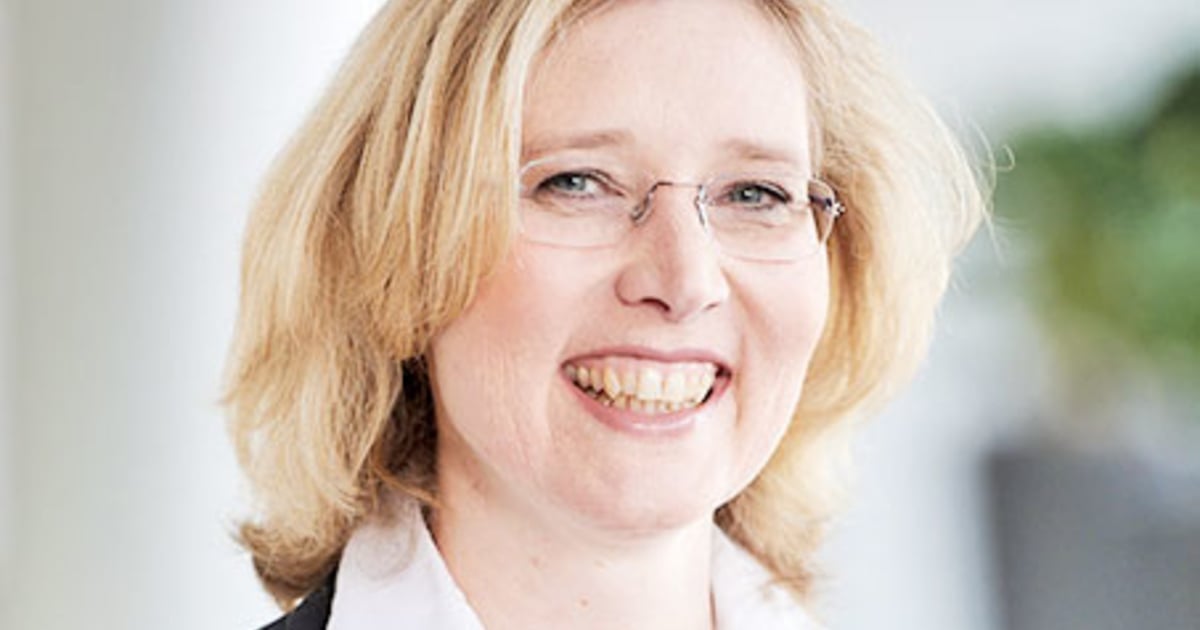
The pandemic slammed the brakes on the luxury segment’s profit engine — leasing.
At the end of 2022, lease penetration at BMW was down dramatically — 30-plus points vs. pre-pandemic levels, BMW National Dealer Forum Chairman David Sloane told Automotive News at the time.
“The No. 1 goal should be to retain our lease customers,” Sloane said.
BMW and its captive finance arm listened, then responded with programs to make leasing more compelling.
Birgit Boehm, 55, CEO of BMW Group Financial Services for the U.S. and Americas, spoke with Staff Reporter Urvaksh Karkaria about the resurgence in leasing and what’s driving it. Here are edited excerpts.
Q: How is leasing activity shaping up for BMW this year?
A: In the first half of the year, leasing penetration increased nearly 30 percent [from year-end 2022]. We expect that trend to continue.
Leasing is an effective sales tool for dealers to grow brand loyalty and keep customers within the BMW ecosystem. Given the accelerated pace of change the industry is undergoing, leasing allows customers to experience new technologies and drivetrains — such as electric vehicles — without making a long-term commitment.
How has BMW’s lease penetration changed over the past few years?
Pre-pandemic leasing penetration was around 55 percent. Like most in our industry, that percentage decreased during the pandemic due to supply constraints and other macroeconomic factors.
We don’t expect to return to those levels, but we have seen leasing activity growth of more than 40 percent in the second quarter of 2023 versus a year ago. While market conditions have improved, this growth is mainly due to the quality of our current product lineup and the attractiveness of our leasing offers.
The dealer board urged BMW Financial to prioritize leasing with more “compelling offers.” What is BMW doing in this regard?
Our dealers are a critical part of our success. We are working together to increase customer loyalty and reduce lease buyouts.
During recent dealer forum meetings, we discussed programs to make payment walks more manageable for terminating lease customers and retaining a strong portfolio for future sales opportunities.
We launched a special loyalty lease program for returning BMW customers earlier this year. In the second quarter, lease retention rates grew more than 60 percent, and lease buyouts declined 53 percent compared with a year earlier. We recently launched a compelling $799-a-month offer for the electric BMW iX, one of our most exciting vehicles regarding technology and luxury.
And while demand for our electric products remains particularly strong, we offer robust lease credits ranging from $7,500 to $9,900 on EV models.
How does BMW counter elevated new- and used-vehicle prices that incentivize lease holders to buy out their vehicle at the end of the lease?
We have an incredible lineup of internal combustion, electric and hybrid-electric vehicles featuring the latest technology and advanced safety systems, which are very attractive to customers. We also have extremely compelling lease offers in the market to reward returning customers and loyalty programs to provide attractive options toward the next lease. While inventories have improved, we still have extremely high consumer demand and low dealer days’ supply. So we are offering customers the opportunity to extend their current lease while they wait for their new car to be built and arrive at their dealer. Since we know the lease-end experience is a critical part of keeping customers loyal to the BMW brand, BMW Financial Services has invested significantly in digitizing and streamlining that experience through the MyBMW app.
What is BMW’s policy on third-party off-lease buybacks?
Our primary goal is to support BMW franchised dealers by creating opportunities to keep more vehicles in our franchised network. Therefore, we prioritize franchised dealers on our online auction platform to ensure they have more opportunities to purchase off-lease vehicles.
What do you see in terms of lease return rates and positive equity?
Lease return rates have steadily increased throughout 2023. This is due to several factors, including improved new-vehicle availability, new products, strengthening customer demand and loyalty programs that make the payment walk more manageable for customers.
Our realized market values have remained strong despite industrywide declining wholesale prices for used cars. Around three-quarters of BMW customers are in a positive equity position, which helps them move into a new vehicle.
When do you foresee both returning to pre-COVID rates?
Industrywide, used-car prices have declined from an unsustainably high level. While we expect this normalization to continue, used-car prices will remain above pre-pandemic levels for the foreseeable future. The declining inflation rate, strong labor market and pent-up demand for new vehicles, coupled with our strong product portfolio, will continue to be positive catalysts supporting a strong used-vehicle business for BMW. In addition, due to the reduction in leasing over the years, there is less availability of used cars, which will continue to support used-car values positively.